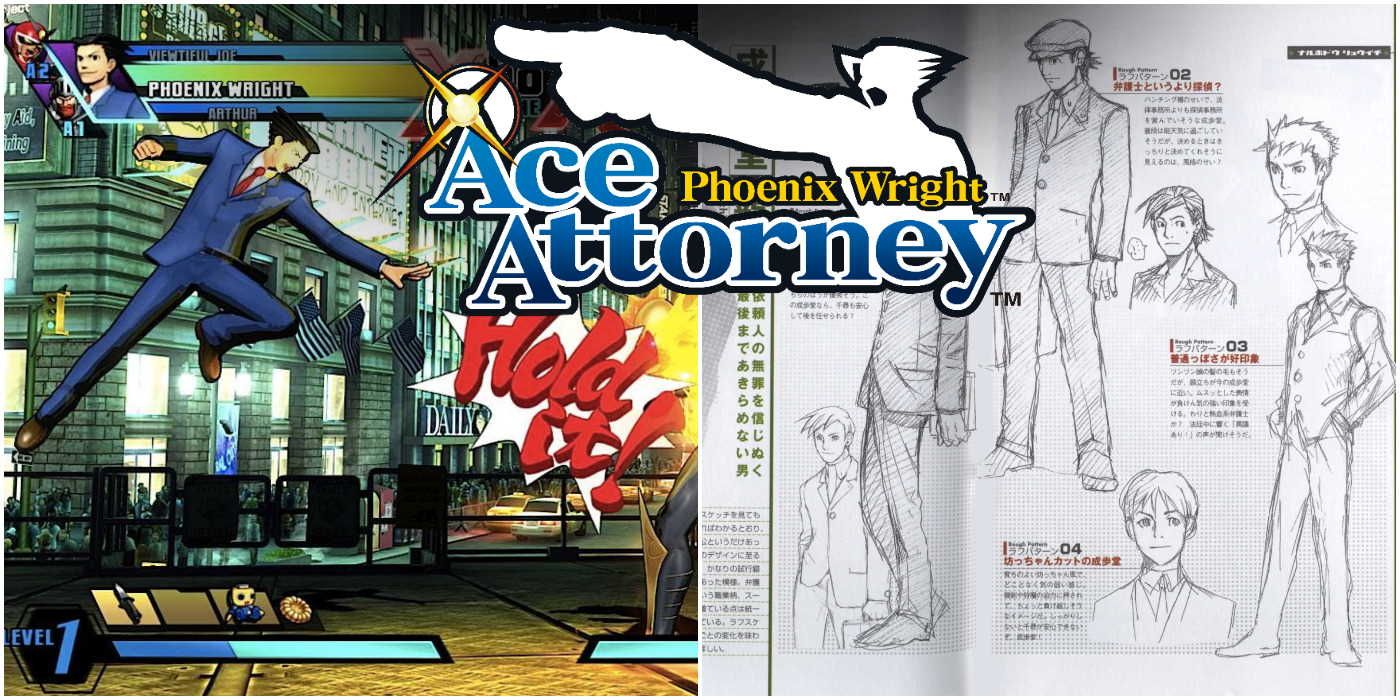
The Ace Attorney series has amassed a dedicated fan community in the twenty years since the release of Phoenix Wright: Ace Attorney. In a series known for seeking out witness inconsistencies, hidden details, and odd facts of the case, it's no surprise that many fans pride themselves on their memorization of the game's many obscure details.
RELATED: Top 10 Detectives In Video Games, Ranked
However, there are some details of the game that only the most dedicated fans may recall. After all, the Ace Attorney franchise has seen a lot of experimentation in its sequels, remakes, and spinoffs over the last twenty years. For most of the general playerbase, many of the franchise's more obscure facts remain almost entirely unknown.
10 "Just Give Up": The Series Almost Didn't Happen
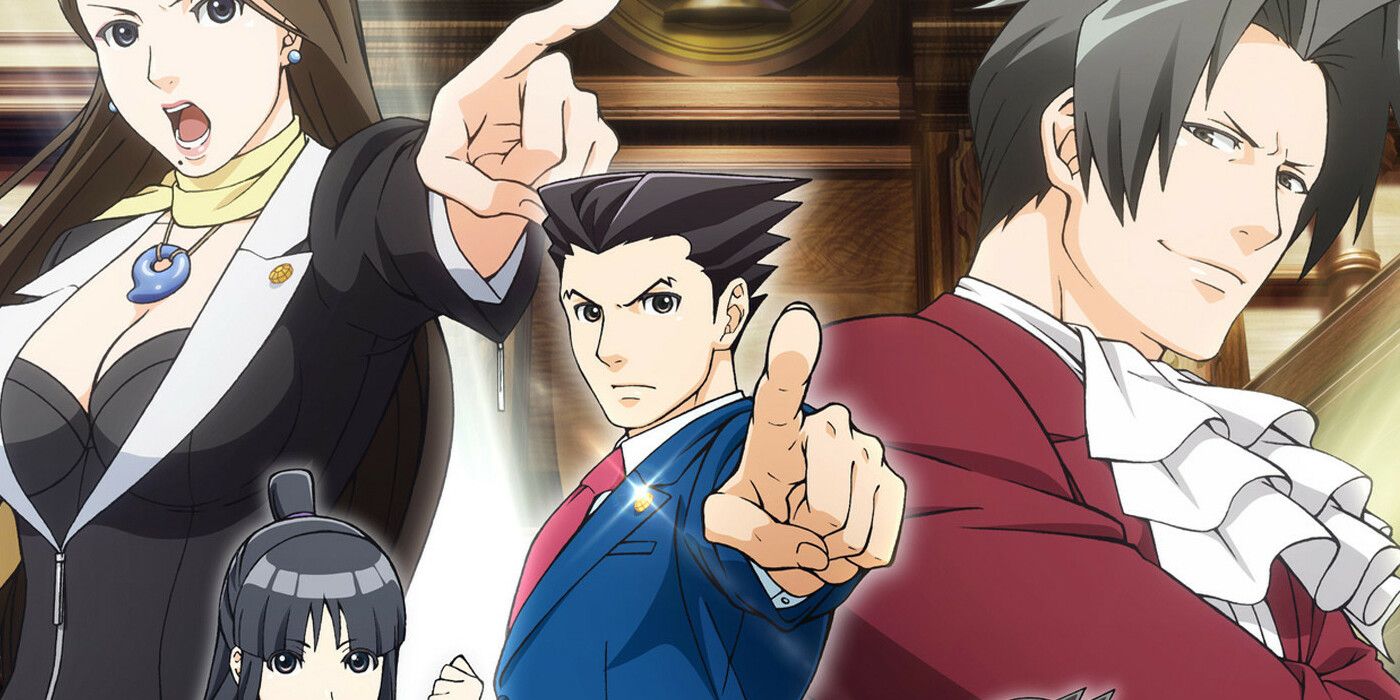
When game designer Shu Takumi first concocted the idea for Ace Attorney, his enthusiasm was not shared by his coworkers. When he described that the crime-based game would feature a lawyer, instead of the common detective archetype, his coworkers feared the game would be bogged down by courtroom procedures. When writing design documents for the game over his summer holiday, Takumi received a phone call from his producer advising him to scrap the whole idea!
Fortunately for Ace Attorney fans, Takumi was convinced the series wouldn't be as stiff and formal as his coworkers feared. The focus of the game shifted onto memorable characters and dynamic courtroom questioning, resulting in the iconic courtroom clashes fans know and love.
9 Objection!: All Shouting Done In-House
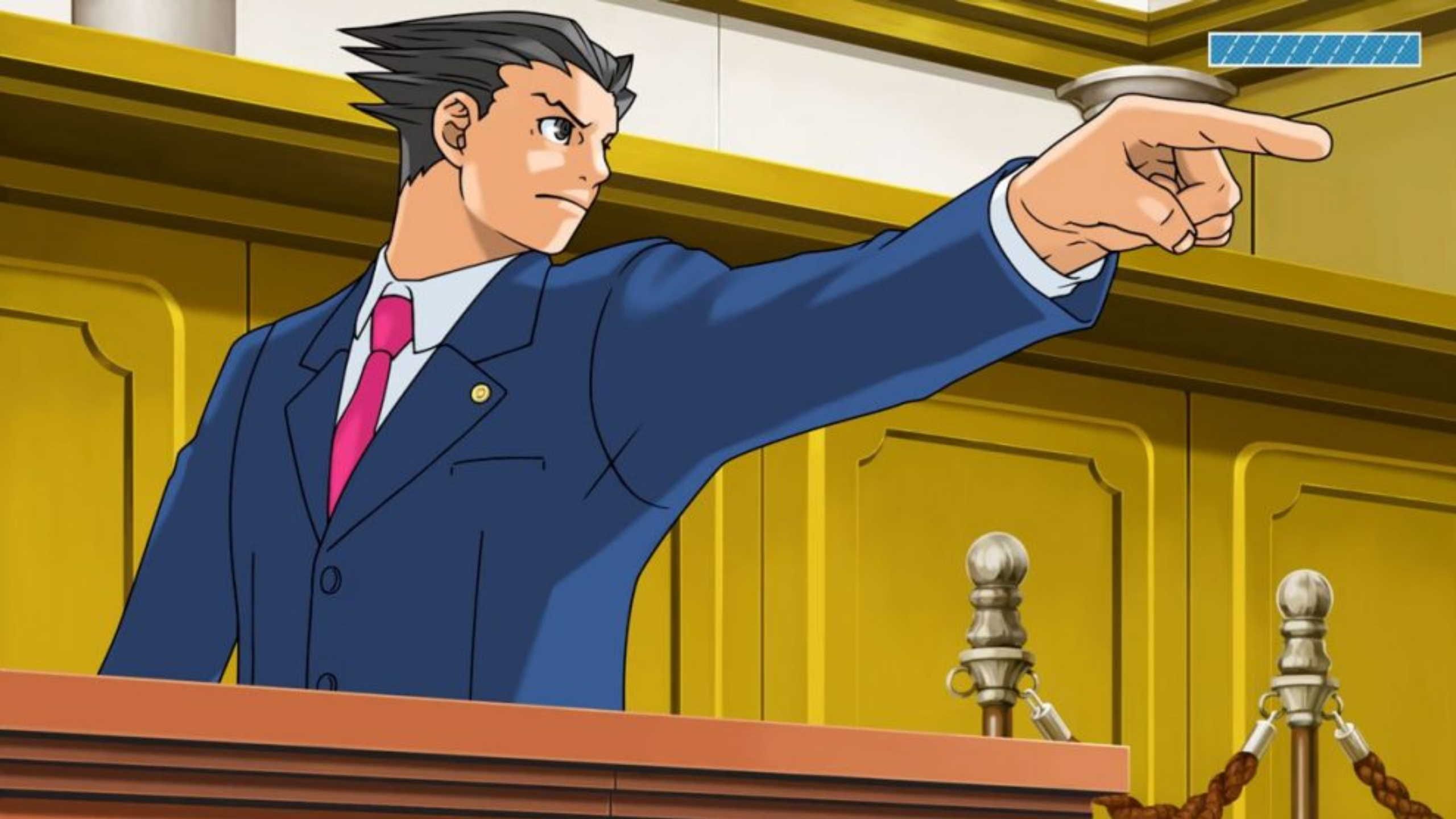
Perhaps the best known feature of the Ace Attorney series is the "Objection!" exclamation that has become synonymous with the franchise. As to be expected, these memorable shouts are typically provided by professional voice actors. However, for many games released on the Nintendo DS, character exclamations were actually provided not by actors, but by the Capcom staff. These weren't small roles, either; Capcom translators voiced main character Phoenix Wright and primary antagonist Franziska von Karma.
Most impressively, rival prosecutor Godot was voiced by Hideki Kamiya, former Capcom employee and founder of Platinum Games.
8 Missile the Dog: An Adorable Inspiration
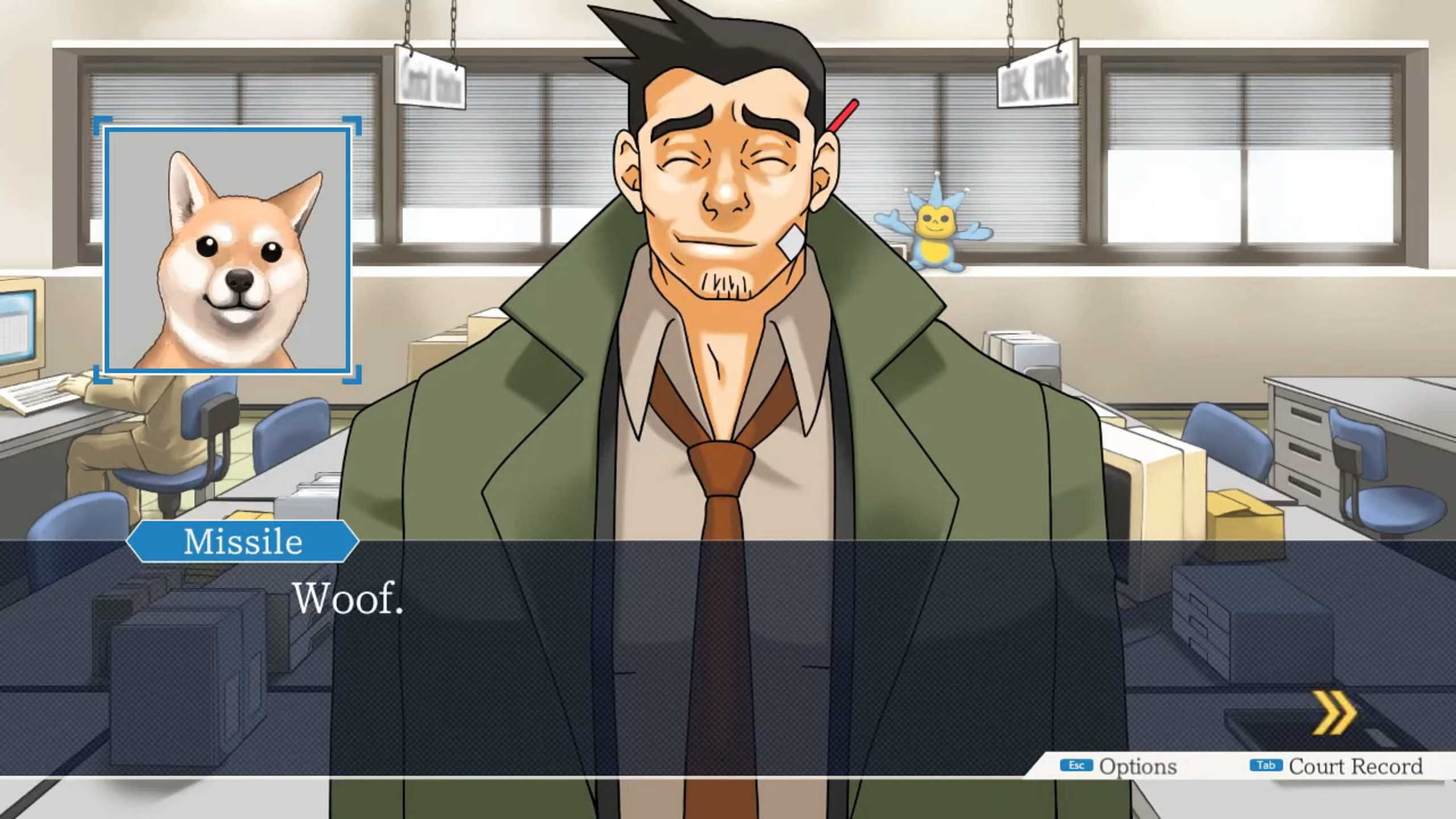
One minor (but adorable) character within the series is Missile, a police dog who aids in solving various cases across the franchise. What few players may realize, however, is the idea (and name) for Missile was borrowed from game designer Shu Takumi's own pet. Takumi's pet Pomeranian Missile was the inspiration for the crime-solving pup. Strangely enough, while the real-life Missile is a Pomeranian, the virtual incarnation of the pet is a Shiba Inu breed.
Always ready to give the dog some more spotlight, Takumi would reference his pet once again in the puzzle game Ghost Trick for the Nintendo DS. Funnily enough, Missile in Ghost Trick was turned into an actual Pomeranian this time around.
7 Von Karma: Last-Minute Von Crying
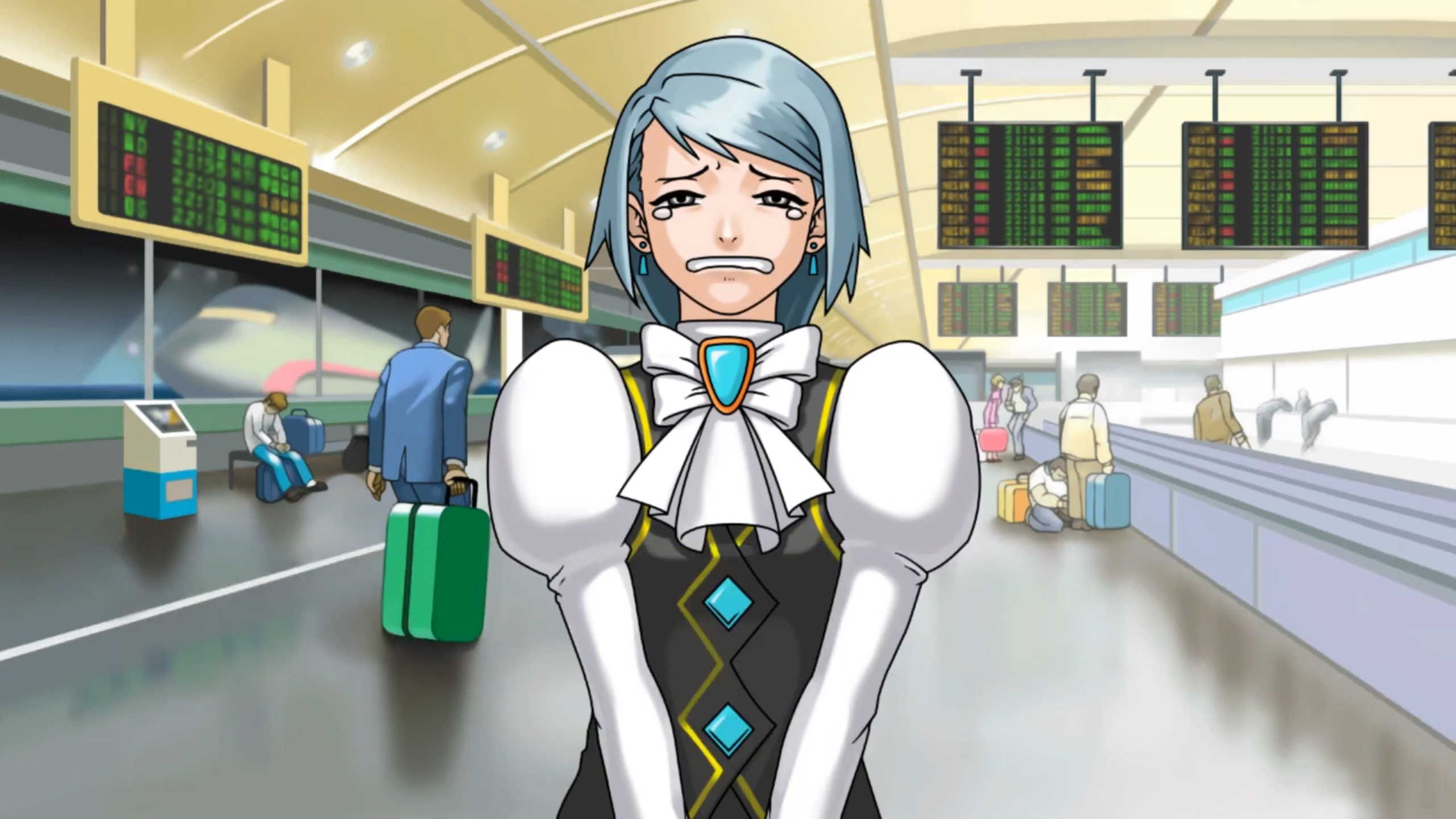
Franziska von Karma remains a fan-favorite character, reappearing many times after her first appearance in the sizable sequel Justice For All. Many fans of the game and character recall her breakdown sequence, in which the confident and ferocious prosecutor suddenly breaks down crying. This attitude turnabout struck many fans as charming, but this entire sequence was added as an afterthought. When Franziska's sprite was intially designed, Takumi asked illustrator Tatsurō Iwamoto to create a crying sprite for the character... although they never planned on using it. Iwamoto, working with an unfinished script and the bare minimum of information about the character, designed a childish blubbering for Franziska.
As the script was finalized, Takumi decided that the animation was too good to be left unused, and rewrote the case's final scene in order to feature Franziska's breakdown. This ended up a pleasant treat for fans of Franziska's softer side.
6 ROGER Wright?: The Localization that Almost Was
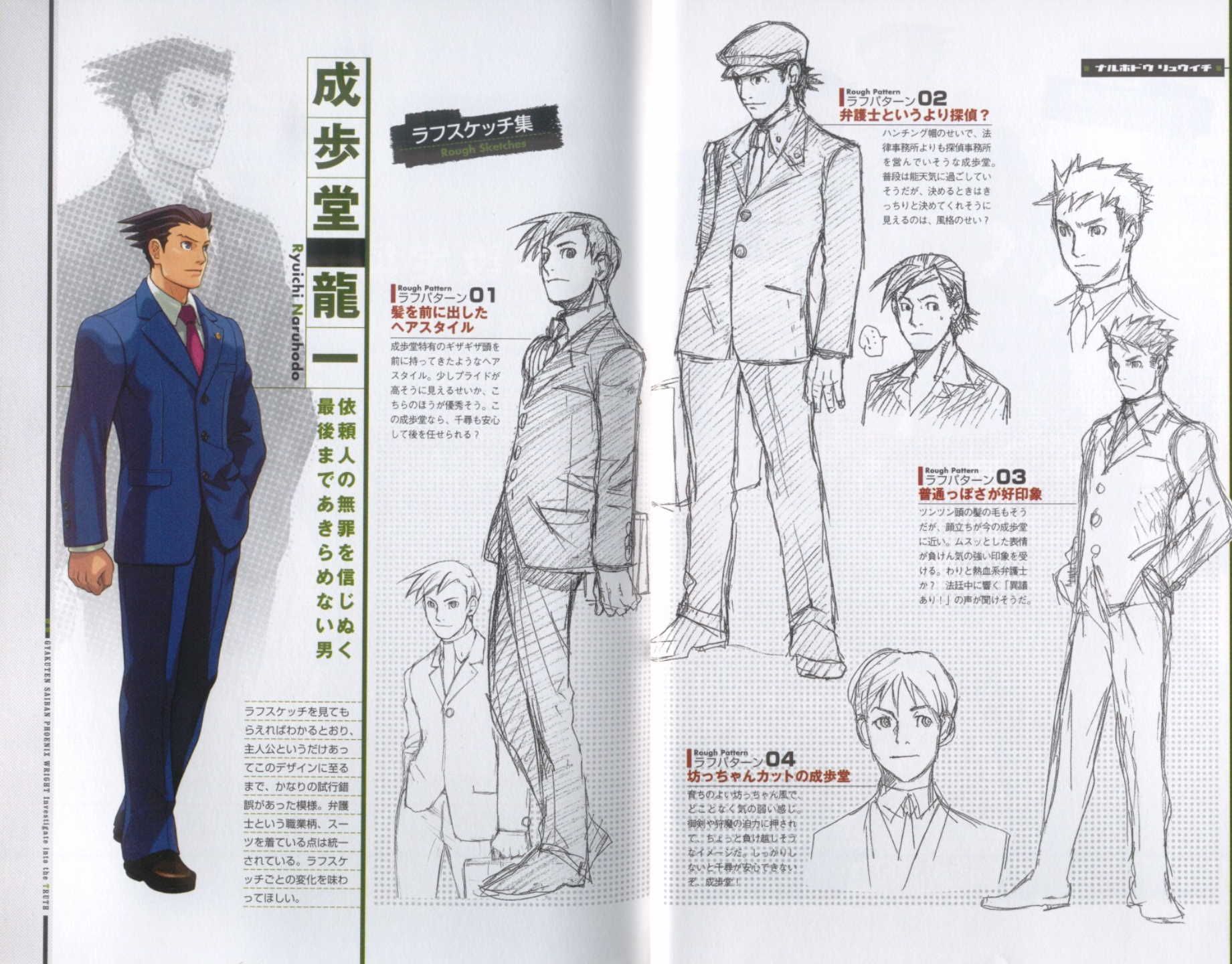
The adaptation of Japanese games to the Western market sometimes requires some considerable alterations in translation. When assembling a list of names for the protagonist, the surname "Wright" was decided upon quickly (since the developers liked the idea of the "Wright" defendant accused of being wrong). However, the front-runner for first name was the common English name of "Roger". This remained the leading choice for the protagonist's name for a long time; the alliteration of "Roger Wright" was considered appealing and heroic.
RELATED: 7 Games We Want Localized
However, Roger Wright was eventually scrapped. The translators feared Roger Wright sounded too similar to Roger Rabbit, star of the animated film Who Framed Roger Rabbit?. To prevent confusion, the team settled on "Phoenix", a very unique name with a ring of heroic quality.
5 Larry Butz: Almost a Pain in the Butz
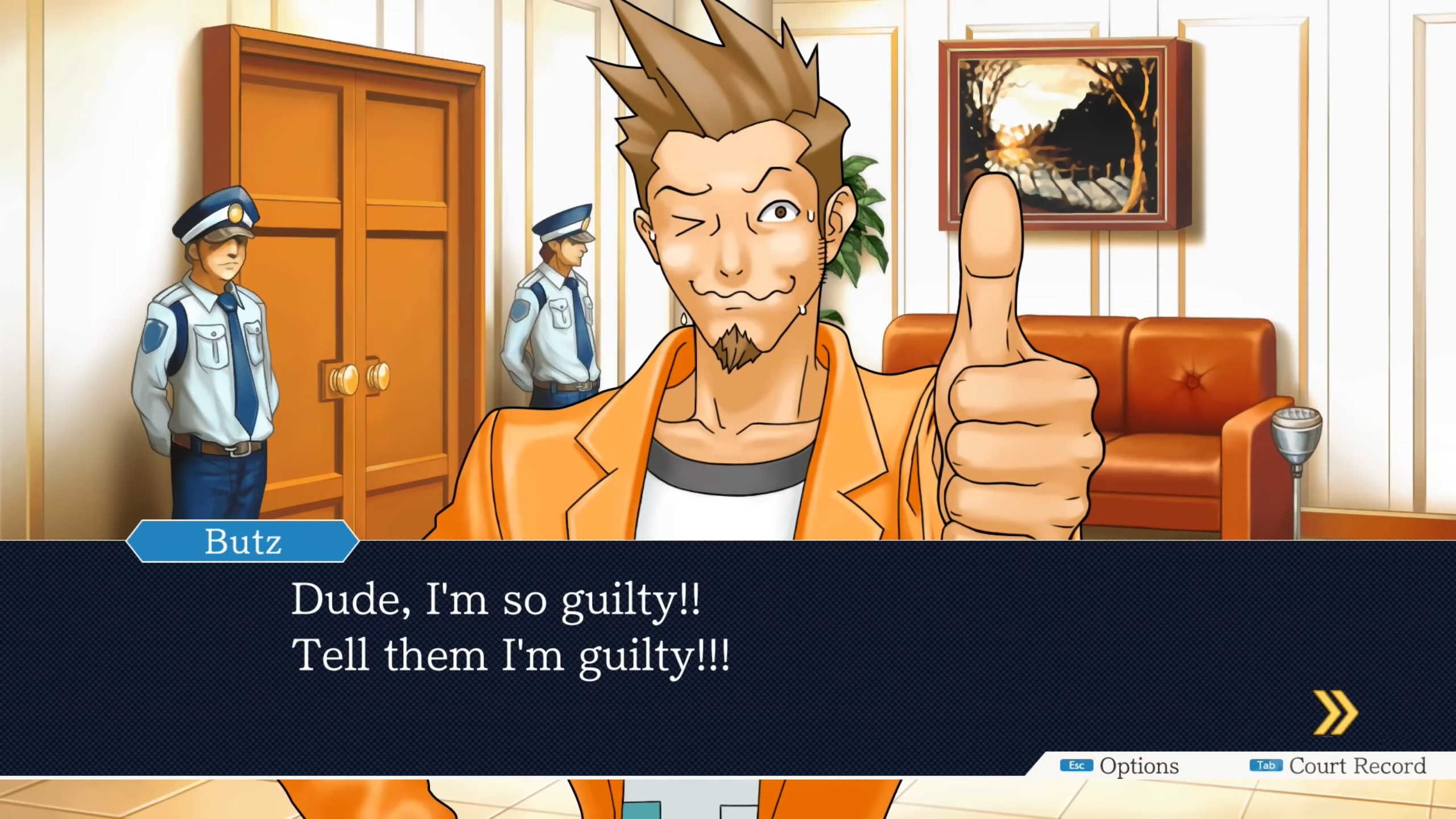
Love him or hate him, Larry Butz, best friend of Phoenix Wright, has been a staple of the series since his appearance in the very first case of the franchise (The First Turnabout). However, Larry was not initially intended to make an appearance in the introductory case. In fact, the introductory case was designed late into the games production, with Larry's inclusion never intended at all. He was originally designed to be an unpleasant office worker, whose sole appearance would be in a later case (Turnabout Goodbyes).
However, during the later creation of The First Turnabout, developers found themselves increasingly restricted regarding memory space, finding the implementation of new characters near-impossible. As such, Larry was reused as the trial's defendant. In order to portray him as a character worth defending, his character was changed into the goofy but well-intentioned friend.
4 Phoenix Wright's Backstory: Truth in Fiction
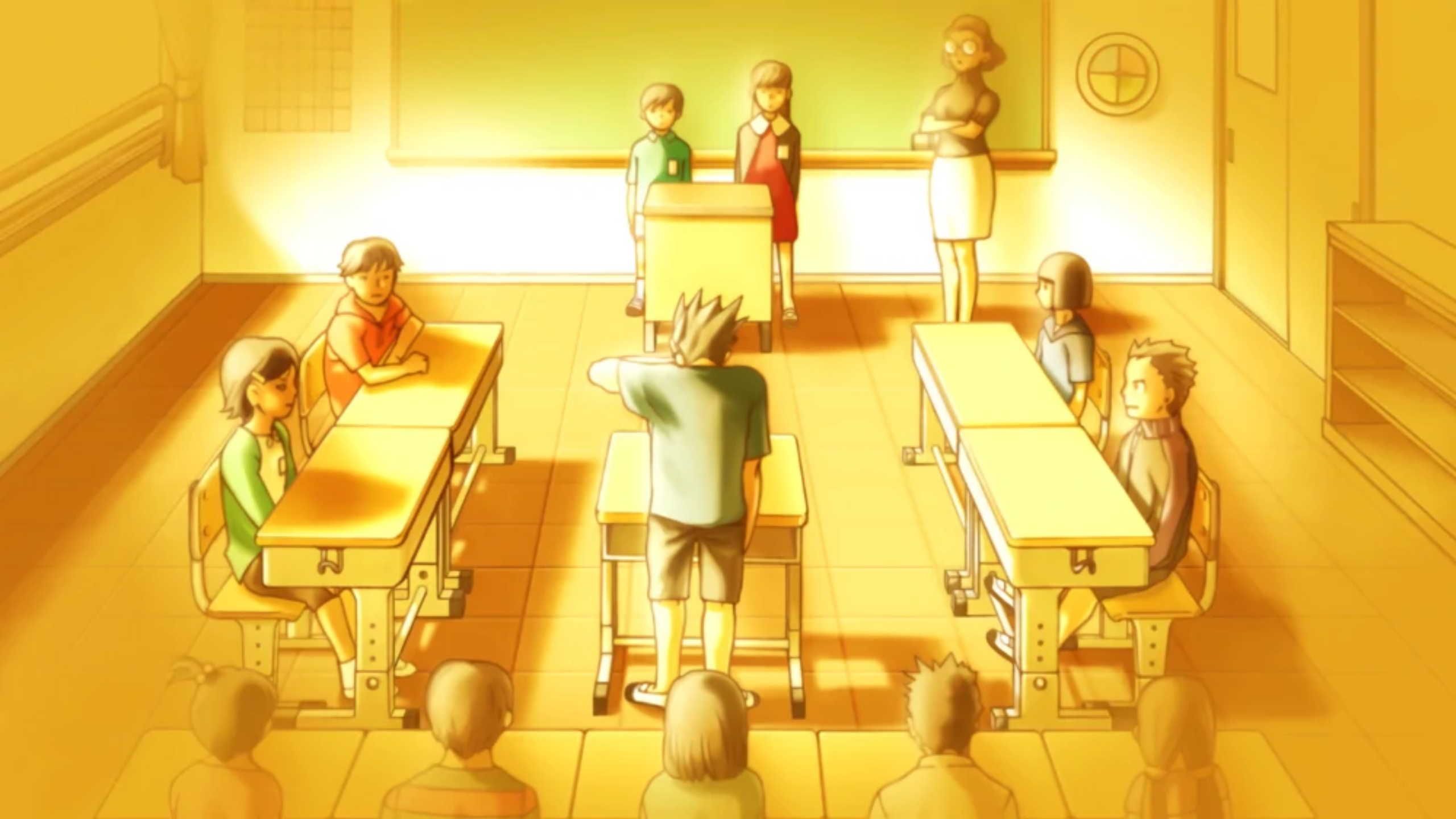
In the first game of the series, a flashback to Phoenix's childhood explains the inspiration for his legal career; when falsely accused of swiping his classmate's lunch money, a young Edgeworth and Larry stood up for him against the rest of the class. Certainly a heartwarming story, but few know that this childhood tale is loosely based on Shu Takumi's own past.
RELATED: The 10 Best Crime-Based Video Games
As a child, Takumi found a piggy bank in the school courtyard, and was accused of stealing the contents. Left undefended, he was forced to apologize. The unfairness of the event stuck with Takumi, who reused the event as a basis for why the Phoenix has such strong convictions regarding the defense of the innocent.
3 Fighting Game Veteran?: The Appearance Phoenix Barely Missed
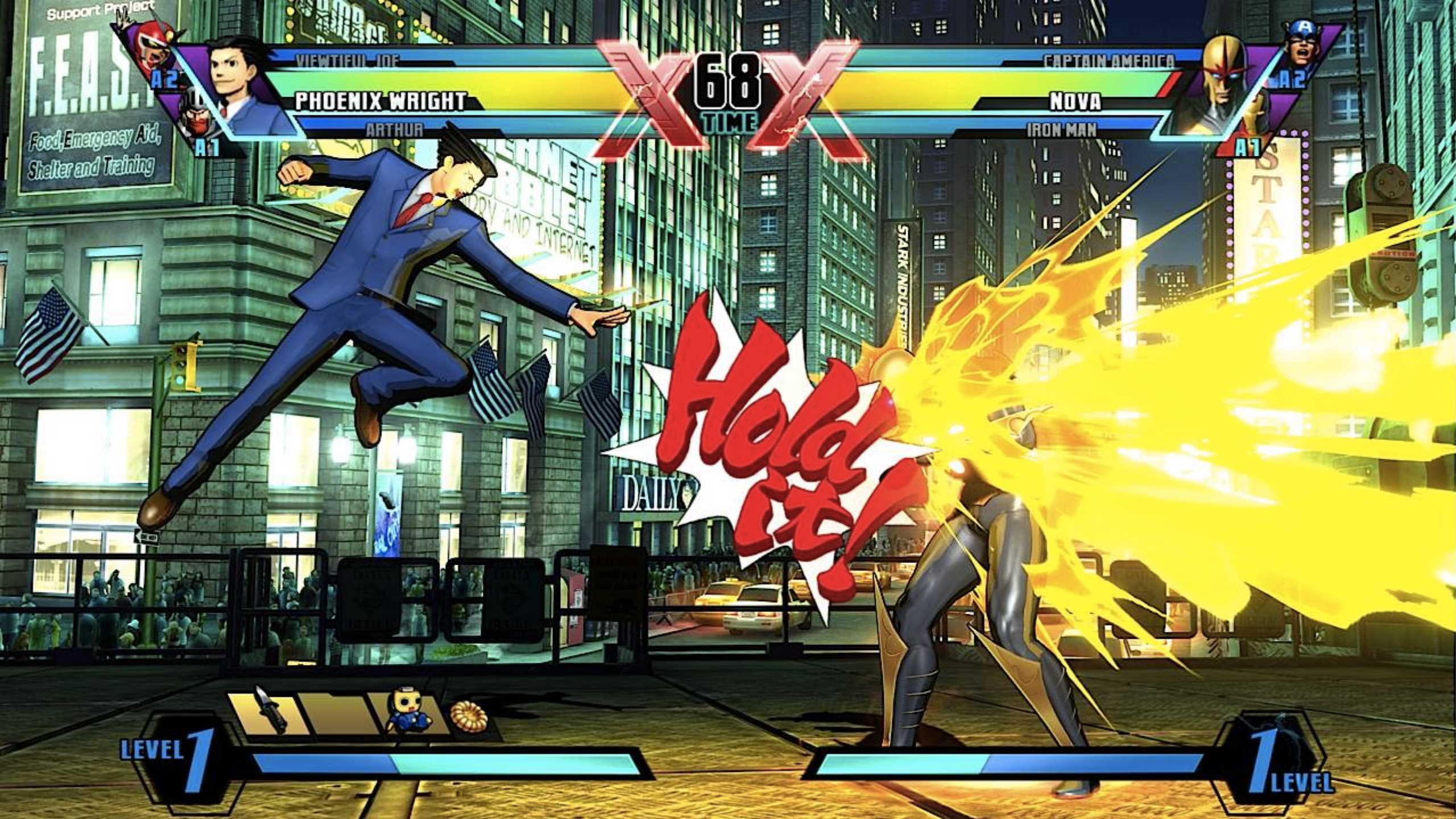
Phoenix Wright is no stranger to fighting games, making a debut appearance in Ultimate Marvel VS Capcom 3. However, this was hardly the first attempt to pull Phoenix into the arena. Both Phoenix and Franziska von Karma were intended to be combatants in the crossover fighting game Tatsunoko VS Capcom. However, both characters were eventually scrapped before the official release.
The developers faced a niche problem with Phoenix's moveset. Phoenix's signature attack would be shouting "Objection!", before hurling the word balloon at his opponent. While this attack functioned normally in Japanese playtests, localization teams decided that the move would be horrific in the Western release. The much shorter "Igiari!" in the Japanese version could be dodged, but the size of the "Objection!" balloon would turn Wright into a monster of a combatant.
2 Time Trials: The Cases Were Originally Much Harder
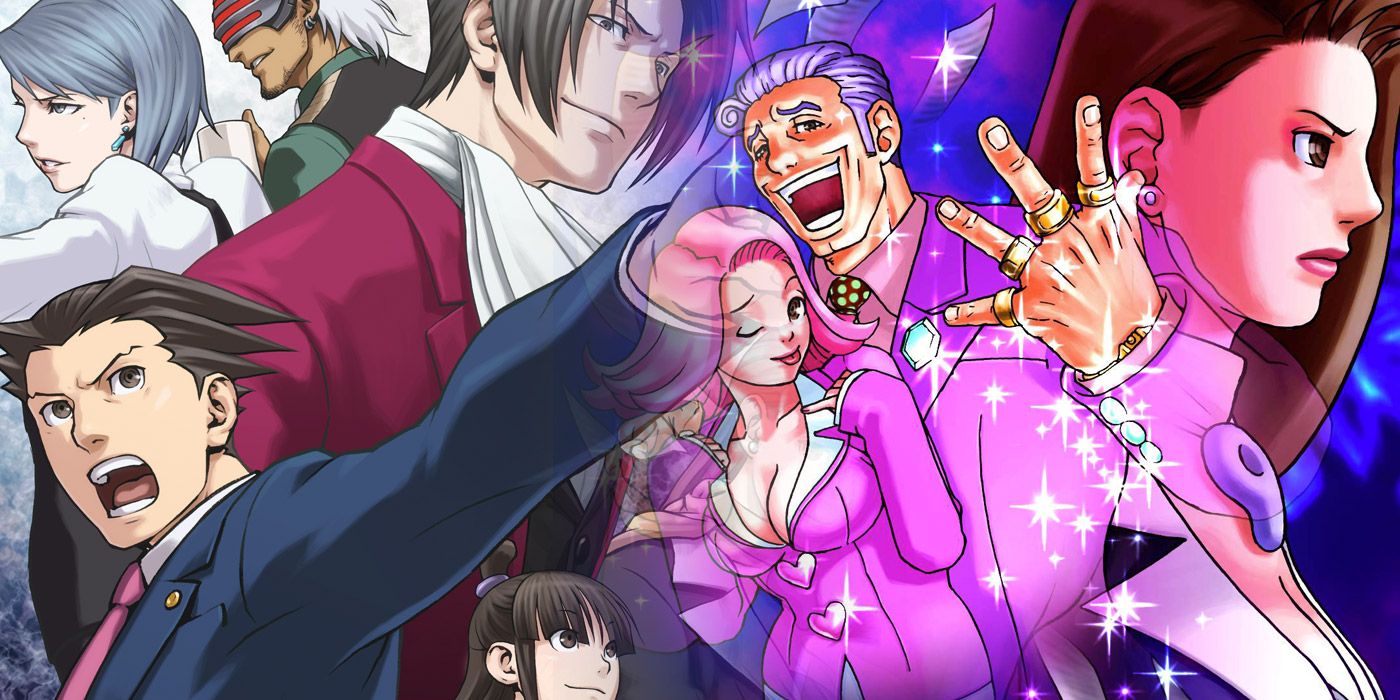
Due to the visual novel-esque presentation of the Ace Attorney games, the presentation of evidence is a slow and tactical affair (although some of the puzzle-like solutions have caused players a great deal of frustration). However, these trials were almost much speedier... and much more punishing. The trials in Phoenix Wright: Ace Attorney originally featured a strict time limit, requiring the player to present evidence at exactly the right moment. If they failed to do so, a slow player would face an instant game over.
Fortunately for methodical fans, this time-trial feature was cut, with developers worrying that the player would be overwhelmed by the time-sensitive mechanics.
1 No Overarching Story: Continuity? What's that?
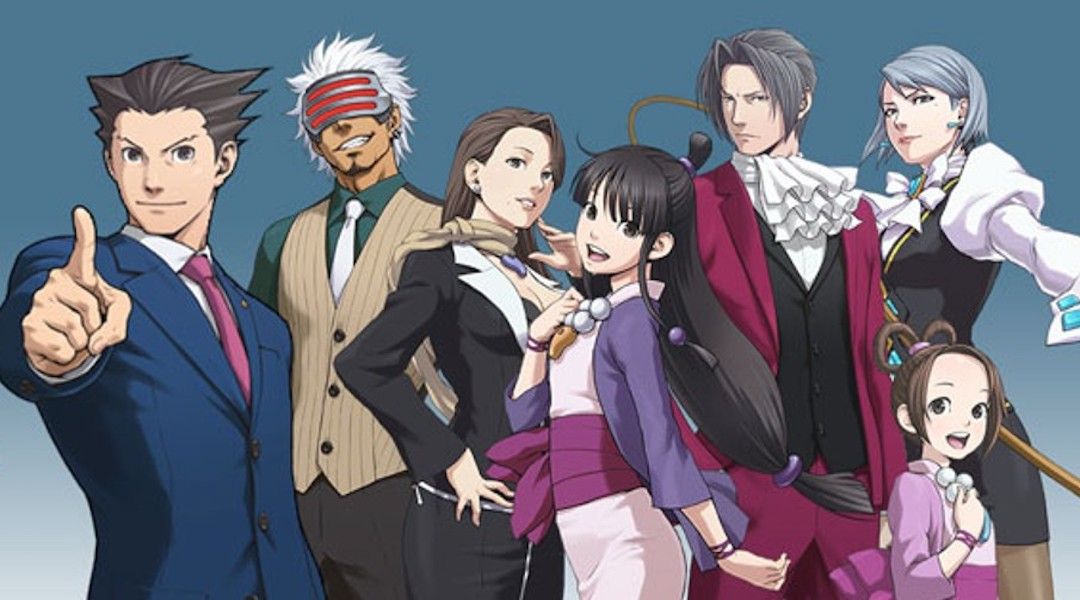
Narrative connection between each of Wright's cases is a long-standing quality of the franchise. However, the complicated links between cases and characters was almost never to be. Ace Attorney was not originally intended to have any kind of story between cases, with each case written so to be almost entirely self-contained and isolated from other trials.
Fortunately for narrative fans, this isolated approach was changed by Shu Takumi. He decided that gameplay designed around discovering inconsistencies in testimonies would seem strange if the game itself wasn't consistent, and began work on an overarching narrative that stretched across all cases.

